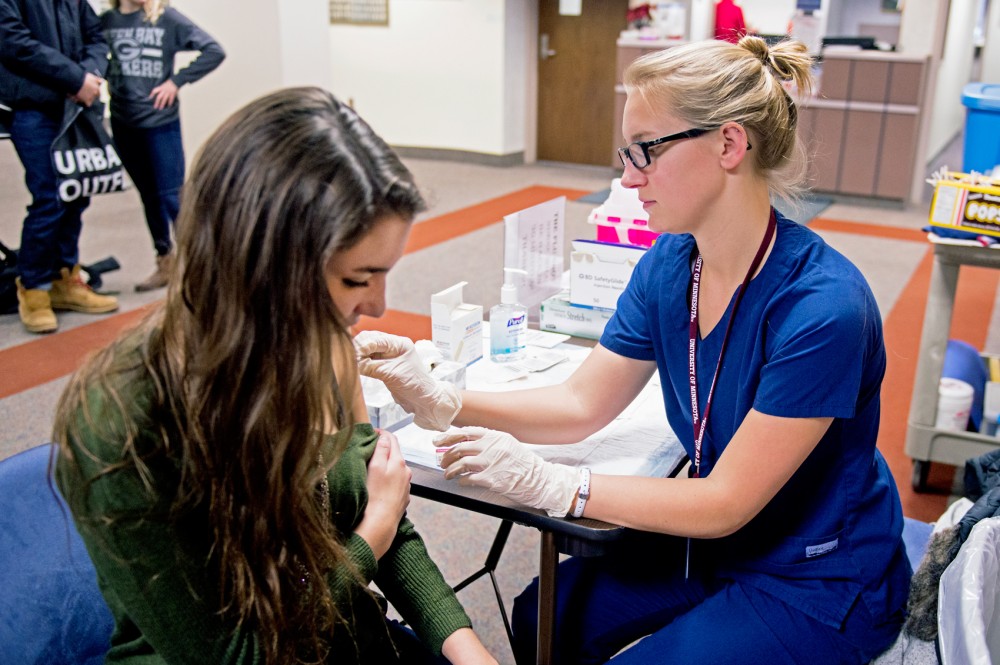Flu season is ramping up just in time for the holidays, but this year more people are protecting themselves against the bug.
Sixty-two percent of Americans surveyed have received a flu vaccine or plan to get one so far this year, a 6 percent jump from last year, according to a Truven Health
Analytics-NPR Health Poll released last month. Of those who stayed away from the shot, 16 percent cited concerns about side effects.
Just under two-thirds of University of Minnesota students have been vaccinated in the past year. But statewide, 20 percent of college-aged adults got the shot this year,
Boynton Health Service Public Health and Communications Director Dave Golden said.
“There’s a natural tendency for folks, especially young adults, to have a sense of invincibility,” he said. “They think, ‘Well, I’ve never gotten the flu, so I don’t need it.’ ”
Though most young adults are healthy, many of the people they interact with aren’t, Golden said. Those whose bodies aren’t strong enough to develop antibodies in response to the vaccine — like babies and the elderly — are vulnerable.
“Some people look at the holidays as a great gathering … but I also see it as great vector for exchanging bugs,” he said.
Sociology junior Allison Park said she hasn’t had time to get the shot and isn’t sure she will, though she’s received it in the past and hasn’t gotten the flu.
Still, many stay away from the vaccine because they aren’t educated on how it works, said Mark Schleiss, University Pediatric Infectious Diseases and Immunology Division director.
“The ‘average Joe’ on the street thinks of the flu as some kind of stomach virus, but … it’s a respiratory infection,” he said. “I think if people had a better understanding of what influenza truly was, how dangerous it can be and how safe and benign the vaccine is, people would think of things differently.”
But geography junior Anna Hanson said she doesn’t want to risk getting the flu from the shot, after battling mononucleosis about a month ago.
Hanson shares the fear with 14 percent of Americans, according to the Truven poll. Schleiss said it’s a common misconception about the flu.
“It is biologically impossible to get the flu from a flu shot,” he said. “To me, it is the scientific equivalent of saying the sun might revolve around the earth.”
Vaccinated individuals may still contract the flu if they catch one of many strains the shot doesn’t protect against, Golden said. Last year, the vaccine was 23 percent effective, 28 percent less than the year before.
And because symptoms of influenza mimic those of the common cold, he said, some people may think they have the flu when they don’t.
“If people care about their loved ones, they have a moral obligation and ethical responsibility to protect that baby or spouse,” Schleiss said.








